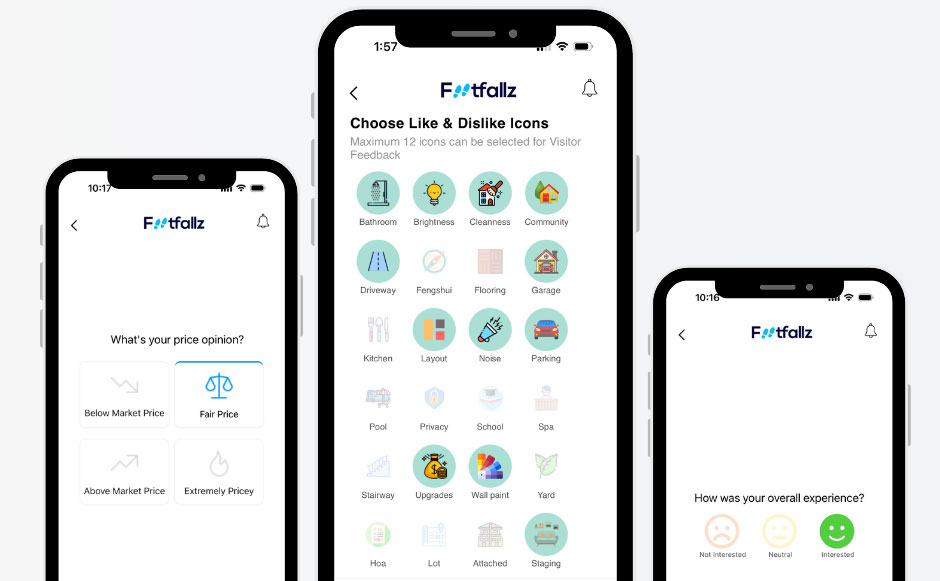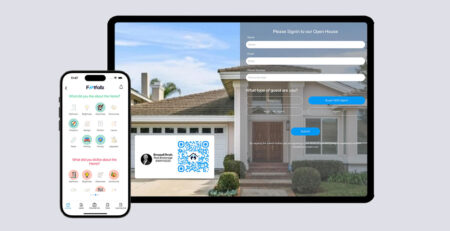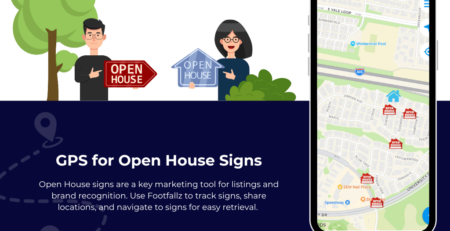Feedback Technology for Realtors: Enhancing Decision-Making in Real Estate
In the fast-paced world of real estate, feedback has often been an underutilized resource. Despite its potential to significantly impact property transactions and client satisfaction, many realtors have not fully embraced feedback as a powerful tool in their decision-making arsenal.
This article aims to shed light on the transformative power of feedback technology in real estate, demonstrating how it can refine property listings, enhance marketing strategies, and ultimately lead to more informed and successful decisions.
Here are the key sections to explore in this article:
- Introduction
- Importance of Feedback in Real Estate Decision-Making
- Feedback Technology Benefits
- How Feedback Helps in Decision Making
- Opportunities for Gathering Feedback in Real Estate
- Ensuring Comprehensive and Relevant Feedback
- Facilitating Feedback Collection
- Utilizing Collected Feedback
- Detailed Seller Reports
- Enhancing Marketing Strategies and Open House Presentations
- Leveraging Feedback for Effective Follow-Up
- Understanding Buyer Preferences
- Personalized Follow-Up Strategies
- Leveraging Feedback for Tailored Property Recommendations
- Building Long-Term Relationships
Introduction
Importance of Feedback in Real Estate Decision-Making
Feedback serves as a critical source of information that enables real estate professionals to refine property listings and marketing strategies effectively.
By understanding the preferences, concerns, and impressions of potential buyers, realtors can tailor their approach to meet market demands more precisely.
This not only improves the chances of a successful sale but also enhances client satisfaction by addressing their needs more accurately.
Overview of Feedback Technology Benefits
Feedback technology offers several advantages to real estate professionals.
It provides a structured approach to gathering insights from various touchpoints in the property transaction process, including open houses, property showings, virtual tours, and post-transaction surveys.
These insights are invaluable in identifying areas for improvement, adjusting pricing strategies, and enhancing property presentation to attract more potential buyers.
How Feedback Helps in Decision Making
Feedback plays a crucial role in refining property listings and enhancing seller satisfaction in the competitive realm of real estate.
By actively collecting and meticulously analyzing feedback from potential buyers, real estate professionals gain invaluable insights into the nuanced preferences and perceptions that influence purchasing decisions.
These insights go beyond mere impressions; they inform strategic decisions about pricing strategies, property presentation, and targeted marketing efforts.
Armed with a deeper understanding of what resonates with buyers, agents can tailor their approach to highlight the property’s strengths, address concerns effectively, and differentiate it from comparable listings in the market.
This iterative process not only enhances the overall appeal of the property but also increases its market competitiveness, positioning it more attractively in the eyes of discerning buyers.
Moreover, the benefits extend beyond immediate transactional success.
Enhanced seller satisfaction stems from the tangible results of feedback-driven improvements, such as faster sales cycles and optimized pricing strategies.
Sellers appreciate the proactive approach of real estate professionals who utilize feedback to refine their listings, as it demonstrates a commitment to achieving the best possible outcomes.
By fostering a collaborative environment where seller input is valued and integrated into decision-making processes, agents can cultivate stronger relationships built on trust and mutual understanding.
Ultimately, this approach not only maximizes the property’s market potential but also reinforces the agent’s reputation as a proactive and results-oriented professional in the competitive real estate landscape.
Opportunities for Gathering Feedback in Real Estate
- Open Houses: Traditional open houses provide an excellent opportunity for realtors to gather immediate feedback from prospective buyers regarding property features, layout, and overall appeal.
- Property Showings: Individual property showings allow real estate agents to engage directly with potential buyers and gather detailed feedback on specific aspects of the property that may influence purchasing decisions.
- Post-Transaction Surveys: Sending out surveys to buyers after a transaction is completed helps gather comprehensive feedback on the entire buying experience, from initial interest to closing the deal.
- Virtual Tours and Online Viewings: In the digital age, virtual tours and online viewings have become increasingly popular. Feedback collected from these platforms provides insights into how well the property translates digitally and helps improve virtual marketing strategies.
Ensuring Comprehensive and Relevant Feedback
To gather meaningful feedback, real estate professionals should employ intuitive and user-friendly feedback forms that cover essential criteria crucial to buyers’ decision-making processes. Modern feedback tools, like the one showcased by Footfallz, allow guests to provide their opinions with just a few touches, making the feedback process seamless and efficient.
These criteria should include:
- Property Condition: Assessing the overall state of the property, including specific features such as bathroom cleanliness, flooring quality, and garage condition.
- Price Perception: Understanding how potential buyers view the property’s pricing relative to market standards, with options like “Below Market Price,” “Fair Price,” and “Extremely Pricey.”
- Neighborhood Appeal: Evaluating the desirability of neighborhood amenities, such as the proximity of schools, parks, and community features.
- Buyer Interests: Gauging specific interests and preferences, such as layout, brightness, and noise levels.
By structuring feedback forms around these key aspects, agents can gather nuanced insights that directly inform strategies to enhance the property’s marketability.
Focusing on these critical elements allows agents to pinpoint areas for improvement that resonate with prospective buyers. For instance, detailed feedback on property conditions can guide decisions on necessary repairs or staging adjustments to enhance visual appeal.
Insights into price perception help in fine-tuning pricing strategies to align more closely with market expectations, thereby maximizing the property’s value proposition.
Understanding neighborhood appeal enables agents to highlight local amenities or address concerns about noise levels or safety, catering to varied buyer preferences effectively.
By addressing these facets through tailored feedback forms, real estate professionals can proactively manage buyer expectations and refine their approach to marketing and presenting properties for optimal sales outcomes.

Facilitating Feedback Collection
Technology is instrumental in modernizing feedback collection processes within the real estate industry, offering tools like Footfallz that automate the request and compilation of feedback.
These advancements simplify the task for agents by sending prompt requests to visitors and buyer agents, ensuring responses are gathered efficiently.
Digital forms and surveys complement these tools by providing structured frameworks that facilitate the systematic collection of feedback.
This digital approach not only accelerates the feedback loop but also enhances its reliability and completeness, enabling real estate professionals to make informed decisions based on comprehensive data.
Moreover, the digitalization of feedback collection encourages honesty and constructive input from participants.
By creating a user-friendly and anonymous platform for feedback, realtors foster an environment where stakeholders feel comfortable sharing candid insights.
This transparency is crucial for agents seeking actionable feedback that can drive meaningful improvements in property listings, marketing strategies, and client interactions.
By leveraging technology to streamline feedback collection and promote open communication, real estate professionals can enhance their service delivery, address client needs more effectively, and maintain a competitive edge in the dynamic real estate market.
Utilizing Collected Feedback
Collected feedback forms a critical foundation for informed decision-making in the real estate sector.
By systematically gathering and analyzing insights from prospective buyers and market trends, real estate professionals gain a comprehensive understanding of the property’s market perception and areas for enhancement.
This knowledge equips agents to provide sellers with detailed insights that empower them to make educated decisions.
Sellers can adjust property listings based on feedback about pricing, property presentation, and market reception, thereby optimizing the property’s appeal and increasing its competitiveness in the market.
This collaborative approach not only enhances the likelihood of a successful sale but also fosters stronger client-agent relationships built on transparency and responsiveness.

Furthermore, sharing feedback with sellers demonstrates a proactive commitment to achieving the best outcomes for clients.
It establishes a partnership where sellers feel supported and informed throughout the sales process, leading to greater trust and satisfaction.
By integrating seller input into strategic adjustments, real estate professionals not only improve the property’s marketability but also demonstrate their expertise and dedication to achieving seller goals.
This collaborative exchange of information strengthens the overall transaction process, ensuring that decisions are grounded in data-driven insights and aligned with market dynamics.
Ultimately, leveraging collected feedback enhances the overall client experience and positions real estate professionals as trusted advisors capable of navigating the complexities of the real estate market with integrity and expertise.
Enhancing Marketing Strategies and Open House Presentations
Feedback technology empowers real estate professionals to refine their marketing strategies and open house presentations dynamically, leveraging real-time insights from collected feedback.
Furthermore, feedback informs promotional efforts, allowing agents to tailor advertising messages and channels to reach target demographics more effectively.
This iterative approach ensures that marketing efforts remain responsive to evolving market trends and buyer preferences.
By continuously refining strategies based on feedback, real estate professionals can enhance the property’s overall appeal and attract a broader range of potential buyers.
This commitment to adaptability not only maximizes the property’s exposure and market competitiveness but also underscores the agent’s proactive approach to meeting client expectations and achieving successful sales outcomes.
Ultimately, feedback technology serves as a catalyst for innovation and improvement in real estate marketing, enabling agents to stay ahead in a dynamic and competitive marketplace.
Leveraging Feedback for Effective Follow-Up
Feedback from buyers is not only invaluable for refining property listings and marketing strategies but also plays a crucial role in effective follow-up. By systematically collecting and analyzing feedback, real estate professionals can gain a deeper understanding of individual buyer preferences, tastes, and requirements. This knowledge allows agents to tailor their follow-up communications and engagements, ultimately enhancing the overall client experience and increasing the likelihood of successful transactions.
Understanding Buyer Preferences
Detailed feedback provides insights into what buyers appreciate and what they find less appealing about a property. For instance, feedback on aspects such as layout, brightness, noise levels, and neighborhood amenities can reveal specific preferences and priorities. By understanding these preferences, agents can identify properties that better match the buyers’ tastes and present them more effectively in follow-up communications.
Personalized Follow-Up Strategies
Armed with feedback, agents can craft personalized follow-up messages that resonate with buyers. Instead of generic follow-ups, agents can address specific concerns or highlight features that buyers liked. For example, if a buyer appreciated the spacious kitchen but had concerns about the backyard, the follow-up message can include information about potential improvements or other properties with similar kitchen features but better outdoor spaces.
Leveraging Feedback for Tailored Property Recommendations
Feedback can also help agents curate a list of properties that align closely with the buyer’s tastes. By filtering available listings based on the specific likes and dislikes gathered from feedback, agents can present a more targeted selection of properties. This increases the chances of finding a match quickly and reduces the time buyers spend looking at unsuitable options.
Building Long-Term Relationships
Effective follow-up based on feedback is also instrumental in building long-term relationships with buyers. Even if a buyer does not purchase a property immediately, maintaining personalized and meaningful follow-up can keep the agent top-of-mind for future opportunities. Satisfied buyers are more likely to return to the agent for future transactions and refer their services to others.
In conclusion, leveraging feedback for follow-up is a powerful strategy that enhances buyer engagement, improves the chances of successful transactions, and builds lasting client relationships. By understanding buyer preferences and tailoring follow-up communications accordingly, real estate professionals can provide a superior client experience and achieve better business outcomes.
Conclusion
In conclusion, feedback technology is indispensable for modern real estate professionals seeking to enhance decision-making processes and client satisfaction.
By leveraging advanced tools and strategies for gathering, analyzing, and utilizing feedback, realtors can refine property listings, improve marketing strategies, and ultimately achieve better business outcomes.
As technology continues to evolve, embracing robust feedback systems will be essential for staying competitive and meeting the evolving expectations of buyers and sellers alike.
Realtors are encouraged to integrate feedback technology into their practices to unlock new opportunities for growth, improve operational efficiency, and build stronger client relationships based on trust and responsiveness.
By harnessing the power of feedback, real estate professionals can navigate challenges more effectively and achieve sustainable success in a dynamic market environment.







